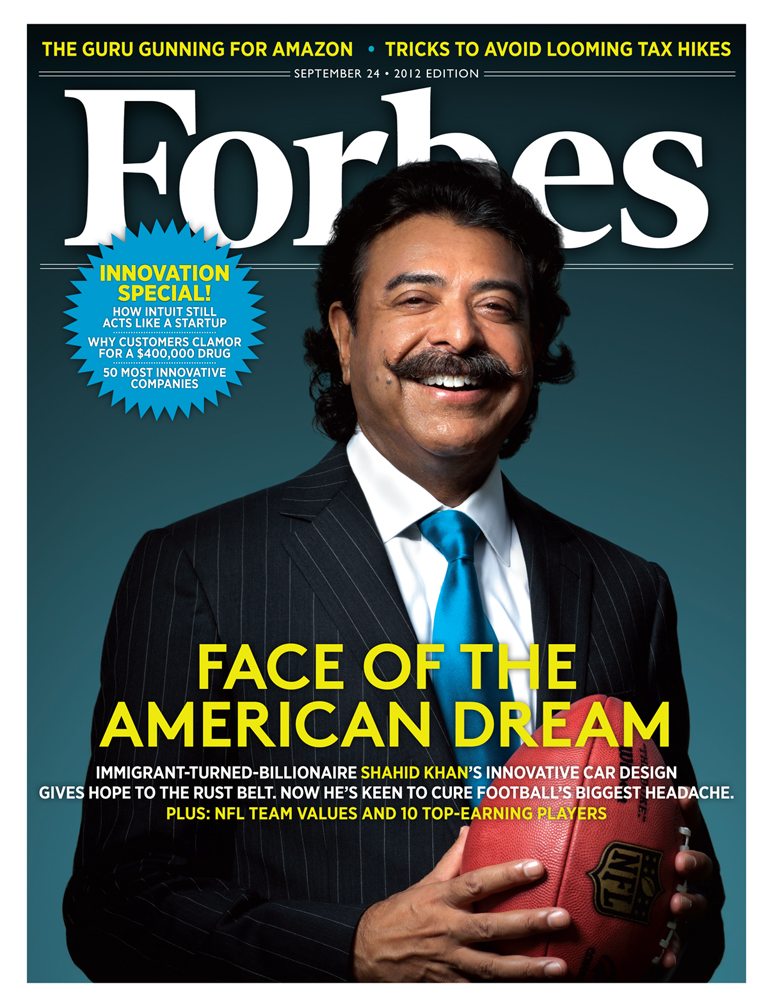When talking about wealthy businessmen in the United States, faces like Warren Buffet and Donald Trump are likely to come to mind. But as globalization brings professionals from all over the world together, the homogeneity of America’s wealthiest entrepreneurs has begun to shift. Pakistani entrepreneur, Shahid Khan, personified this shift when he became one of America’s richest people.
Khan, originally hailing from Lahore, Pakistan, is the owner of an auto parts supplier, Flex-N-Gate, that has grown to support many of the world’s biggest automakers. His net worth is estimated to be about $2.5 billion.
For some Middle Easterners, learning of Khan’s fortune may evoke resentment or displeasure. After all, he’s given millions to his old university in Chicago and even purchased the Jacksonville Jaguars, a National Football League team. However, it’s hard not to root for Khan upon hearing about his hard work and humble beginnings.
According to Forbes magazine, Khan spent his first night in America at an Illinois YMCA for $2 per night. Unfortunately, his timing couldn’t have been worse, and he arrived in the midst of what is now considered Illinois’ worst snowstorm ever. “It was like landing on Mars… with the wrong equipment,” he later told the Chicago Tribune.
Khan washed dishes for $1.20 an hour during his college years. After graduating with a Bachelors of Science degree, he wasted no time inventing a vehicle bumper that improved fuel efficiency. From there, opportunities multiplied and the auto parts business took off.
Khan’s story forces us to consider the concept of “brain drain,” or the tendency for educated, skilled workers to move outside of their native country. Often, this is for better working conditions, more opportunities, or higher pay- things that are unavailable in their home country. Over the past 5 years, well over 2 million moved out of Pakistan for work opportunities. This drain of highly capable people can not only be a detriment to a nation’s economy, but to the diversity and development of its culture.
Further complicating this is a phenomenon sociologists call “double marginalization.” This happens when those who emigrated cannot fit in at their new location, and then try to return home and are shunned. With so many successful Pakistani professionals migrating around the globe, this could pose a serious rift between Pakistan’s residents and these “Westernized” Pakistani migrants. Certainly, this rift does not aid the developing world or contribute to its economic/educational progress.
But it’s not all bad. Surprisingly, researchers say there are some potential benefits to brain drain. These include “circular migration,” which is the tendency of successful workers to transition back and forth between their new and old countries. For locals, this could mean interaction with and influence from skilled, better educated migrants. The result may be more demand and increased interest in higher education in developing countries. Circular migrants have the opportunity to change local workers, who may have stagnant mindsets, limited expectations, or less knowledge about what they can achieve and how. Many migrant professionals also send remittances, or portions of their income back to their home countries.
Regardless of your opinion on brain drain and its societal impacts, stories like Khan’s serve as a reminder of what is achievable, regardless of poverty, language barriers, and other common obstacles. Those who knew him say Khan’s adaptability was one of his most admirable traits – one that likely helped him to the top. He immersed himself in a new, unfamiliar culture, worked to stay afloat financially, and managed to graduate from university despite his hardships. When companies originally turned his supply company down, he simply persevered until some of those same companies began buying from him.


